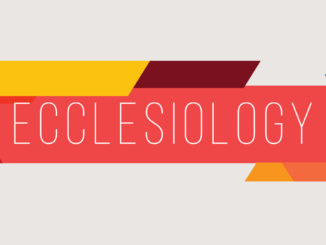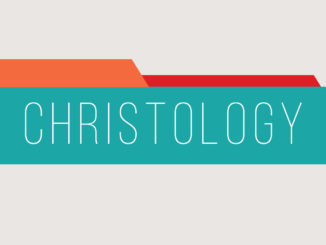
To begin a discussion regarding any doctrine, especially one which could be as divisive as prophecy, a solid foundation is necessary. Thayer’s Greek Lexicon defines prophecy as a discourse emanating from divine inspiration and declaring the purposes of God, whether by reproving and admonishing the wicked, or comforting the afflicted, or revealing things hidden; esp. by foretelling future events.” [1]
This article will focus on the discipline of Eschatology, or the “revealing of things hidden.” In other words, those things which have been recorded in the past but speak about things that are to us yet future.
Prophecy is simply history that hasn't happened yet. Click To TweetOne of my favorite ways to consider biblical prophecy applies a quote I heard from a preacher during my collegiate years. I have no idea who the preacher was, but I wrote this quote on the fly page of my Bible. “Prophecy is simply history that hasn’t happened yet.”
I find that thought very helpful in considering prophecy. Too often I think we get the idea that God has forecast the ending and now He’s busily manipulating people and circumstances to accomplish the end that’s been written. Rather, in His infinite wisdom, He has looked through the span of time, has seen what will occur, and then has provided those details to the prophet to in turn relate to us.
Scriptural Support
Our all-knowing God has chosen to reveal to us, through the prophets, some of the events that will take place in the future. “Behold, the former things have come to pass; now I declare new things; before they spring forth, I proclaim them to you.” (Isaiah 42:9) These prophecies weren’t proclamations that the prophets could make on their terms or schedules. True prophecy does not originate with the prophet but comes from God alone.
“Knowing this first, that no prophecy of the Scripture is of any private interpretation. For the prophecy came not in old time by the will of man: but holy men of God spake as they were moved by the Holy Ghost.” 2 Peter 1:20-21
The study and understanding of prophecy are an important but often neglected portion of our spiritual journey. Paul was careful to encourage the Roman Christians, many of whom were Gentile and unfamiliar with the Old Testament teachings, in the study of all those things which are found within the pages of the Old Testament – including the prophecies, “For whatsoever things were written aforetime were written for our learning, that we through patience and comfort of the scriptures might have hope.”
Romans 15:4
Historical Perspective
In considering how the early church understood Eschatology and biblical prophecy, it’s important to understand that they often did not have a systematized view like we take for granted. Berkhof, in his Systematic Theology, states, “In the very first period the Church was perfectly conscious of the separate elements of the Christian hope… But these elements were seen as so many separate parts of the future hope and were not yet dogmatically construed. Though the various elements were quite well understood, their interrelation was not yet clearly seen.” [2]
Like today, the early church held a variety of views. Papias and Irenaeus espouse a literal 1,000-year reign[3] while Clement of Alexandria and Augustine were amillennial.[4]
Throughout the Middle Ages and the Reformation periods there were a variety of views, mostly centered around the identification of the Roman Catholic Church or later the papacy as the Antichrist, which ultimately was hindering the triumph of the church and the postmillennial return of Christ. This view was nurtured in the American colonies by the great revivalist Jonathan Edwards, who believed that the Great Awakening was an indicator of Christ’s coming.
Premillennialism, while espoused by some throughout history, became the dominant view following the World Wars, supposed by some to be a response to the rise of liberalism. Dispensationalism became even more popular after May 1948 and the rebirth of the nation of Israel.
Practical Application
The study of prophecy provides an opportunity to confirm the reliability of Scripture. By examining prophetic fulfillments that are in our past, we are more assured of the reliability of prophecy as-yet-unfulfilled.
This assurance provides a firm foundation for the believer and a reason to believe for the one searching for the truth.
Click here to read the Introduction to the series, Why Study Theology
Click here to read part one of Rooted: An Introduction to Systematic Theology, Bibliology
Click here to read part two of Rooted: An Introduction to Systematic Theology, Theology Proper (available October 29, 2019)
Click here to read part three of Rooted: An Introduction to Systematic Theology, Christology (available October 31, 2019)
Click here to read part four of Rooted: An Introduction to Systematic Theology, Pneumatology (available October 31, 2019)
Click here to read part five of Rooted: An Introduction to Systematic Theology, Angelology (available November 1, 2019)
Click here to read part six of Rooted: An Introduction to Systematic Theology, Ecclesiology (available November 4, 2019)
Click here to read part seven of Rooted: An Introduction to Systematic Theology, Anthropology (available November 5, 2019)
Click here to read part eight of Rooted: An Introduction to Systematic Theology, Hamartiology (available November 6, 2019)
Click here to read part nine of Rooted: An Introduction to Systematic Theology, Soteriology (available November 7, 2019)
Click here to read part ten of Rooted: An Introduction to Systematic Theology, Eschatology (available November 8, 2019)
Click here to read part eleven of Rooted: An Introduction to Systematic Theology, Dispensationalism (available November 8, 2019)
Notes
[1] Thayer, J. H. (1889). A Greek-English Lexicon of the New Testament: being Grimm’s Wilke’s Clavis Novi Testamenti (p. 552). New York: Harper & Brothers.
[2] Berkhof, L. (2015, July 27). Systematic Theology. Retrieved from Christian Classics Ethereal Library: http://www.ccel.org/ccel/berkhof/systematictheology.viii.i.html
[3] Eusebius. (2017). Church History Book III. Retrieved from New Advent: http://www.newadvent.org /fathers/250103.htm
[4] Augustine. (2005, July 13). St. Augustine’s City of God and Christian Doctrine. Retrieved from Christian Classics Ethereal Library: http://www.ccel.org/ccel/schaff/npnf102.iv.XX.8.html



